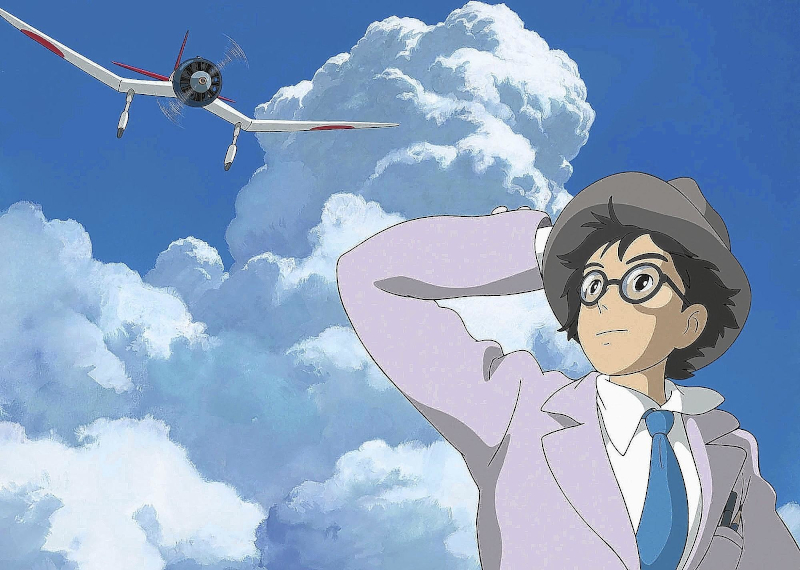This triple review was originally published in Third Way, April 2014.
The King and the Mockingbird (Le Roi Et L’Oiseau)
Director – Paul Grimault – 1980 – France – Cert. U – 83m
UK release date 11/04/2014
*****
Wrinkles (Arrugas)
Director – Ignacio Ferreras – 2011 – Spain – Cert. 15 – 89m
UK release date 18/04/2014
*****
The Wind Rises (Kaze Tachinu, 風立ちぬ)
Director – Hayao Miyazaki – 2013 – Japan – Cert. PG – 126m
UK release date 09/05/2014
****
Animation is all-too often regarded – if not dismissed – as a children’s medium, yet it’s no more (or less) so than live action. Animated features aimed at a grown-up audience are rare. Incredibly, three are released this month.
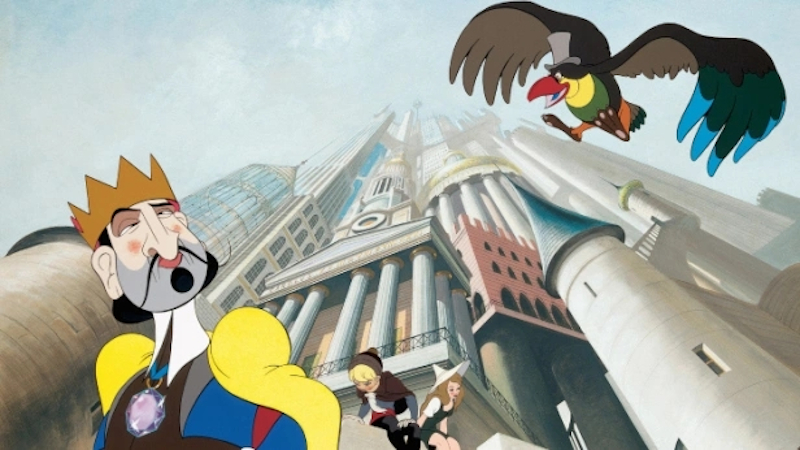
The first, The King and the Mockingbird (1980), originally released here thirty years ago as The King And Mr. Bird and known equally by its French title Le Roi Et L’Oiseau, may contain nothing you wouldn’t want children to see but is actually a remarkable fable about overcoming a totalitarian regime. Considered among the greatest animated films ever made, it’s a major influence on Miyazaki (see below). This labour of love by director/animator Paul Grimault, based on a poetic screenplay by Jacques Prévert (Les Enfants Du Paradis, Marcel Carné, 1945) deals with a despotic king in a towering castle festooned with trap doors which he uses to dispose of anyone and everyone who disagrees with him. But he meets his match in a talking bird who, embodying the French virtues of liberté, égalité and fraternité, stands up to him. Purists might want to track down the French subtitled version, but the English dub is fine.
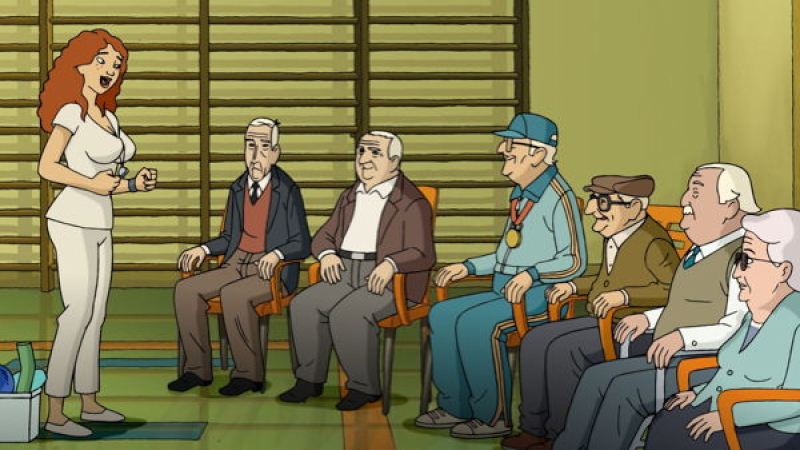
Confronting the Western taboo of how we look after / deal with our ageing population, charming yet insightful Spanish production Wrinkles is a slow-paced narrative about life for the residents of a care home. There’s an element here of, shunt our elderly relatives off somewhere where they’re no trouble (for us) to look after inextricably entwined with the more honourable one of giving them the best care possible. Co-scripted and designed by Paco Roca, who wrote the source graphic novel, the film is lovingly directed by Ignacio Ferreras with a real respect for the subject matter. The telling may gain a certain immediacy from the animation medium, but never sentimentalises or otherwise cheapens its characters. The English dubbed version shown to press is pretty effective once you get past the slight, mid-Atlantic accents; some cinemas will be showing the Spanish subtitled version, unseen by this writer, which might improve it further.
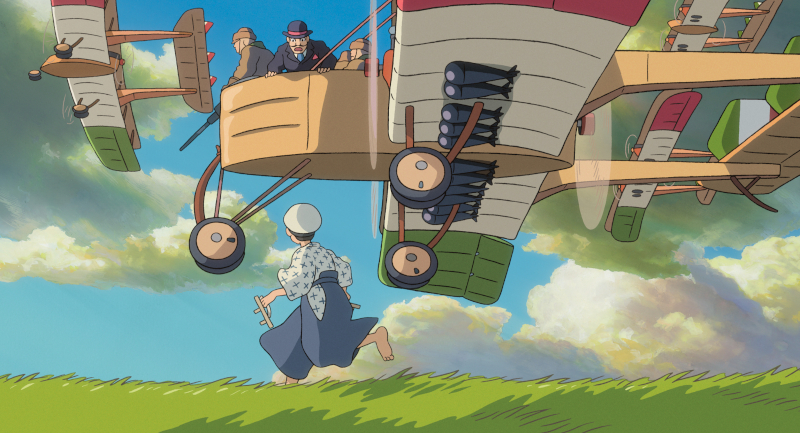
The latest film by the better known Miyazaki is a long way from the children’s films for which he is best known (typified by My Neighbour Totoro, 1988; Ponyo, 2008). Like Wrinkles, The Wind Rises began life as a printed comic (or, to use the Japanese term, ‘manga’). An animated narrative built around the career of Mutsubushi Zero aircraft designer Joji Horikoshi, it intersperses his factual career with dream sequences and fictionalises his private life, borrowing heavily from Tatsuo Hori‘s eponymous 1937 novel about female TB patients in a sanatorium. As in earlier Miyazaki works like Nausicaä of the Valley of the Wind (1984) and Porco Rosso (1982), several sequences feature flying machines in aeronautical displays.
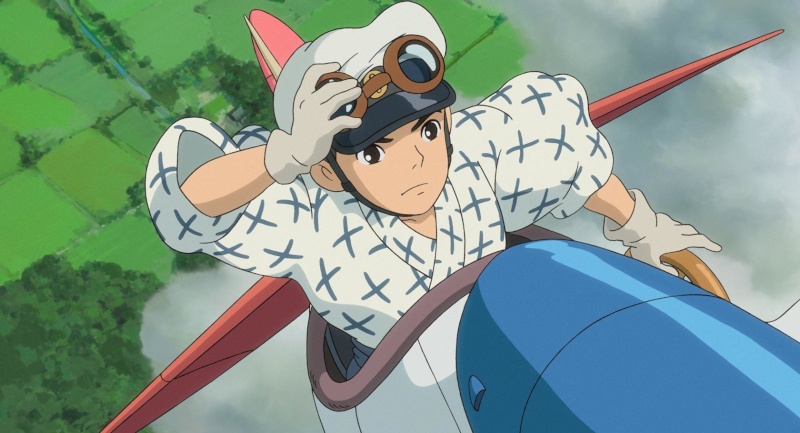
Here, these are test flights, while the planes’ actual wartime deployment is limited to a line of dialogue. Miyazaki is interested in aircraft as a realisation of his designer hero’s dreams, but uninterested in any connection with the war. That seems a minor gripe compared to everything else on offer (2024 update: those wanting to see an animated feature that tackles this thorny issue far more successfully are directed to Pakistani marvel The Glassworker, Usman Riaz, 2024): as a tale of a man reaching into the skies it’s inspiring, as a tale of a man who falls for and marries a terminally ill woman it’s extremely moving. It’s also very Japanese – I saw the Japanese language version with subtitles and really can’t imagine it working as well dubbed into English.
Any one of these three films would make for outstanding viewing in any year they were released. To get all three in one month is a real treat. Just don’t presume that animation means they’re for kids.
Triple review originally published in Third Way, April 2014.
Trailers:
